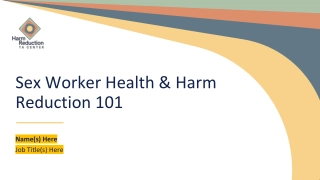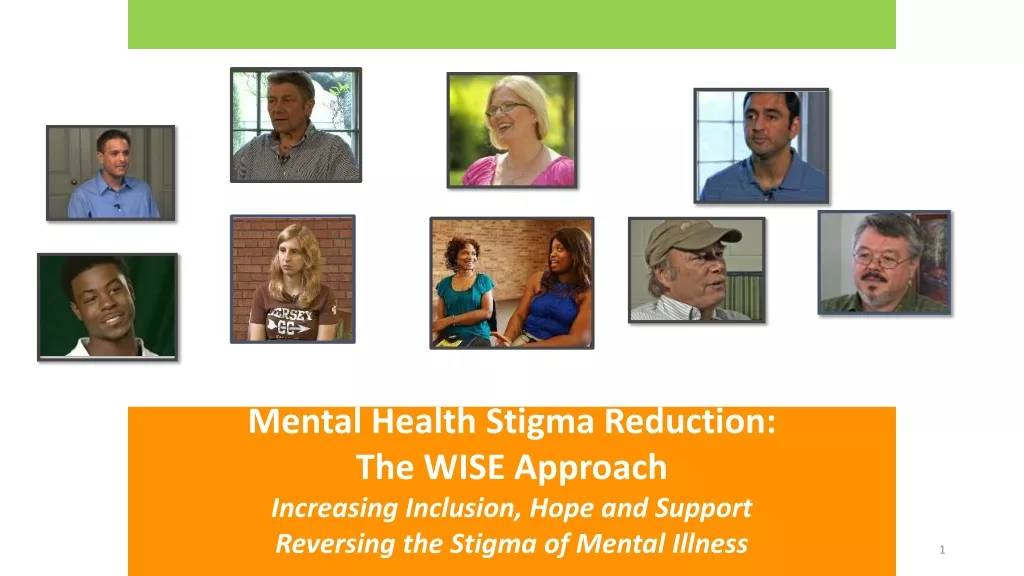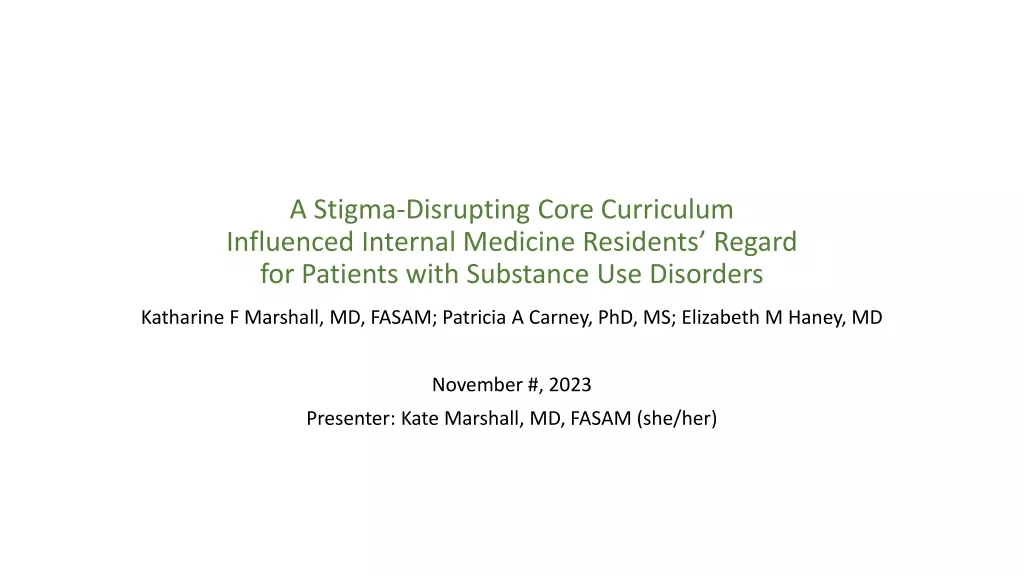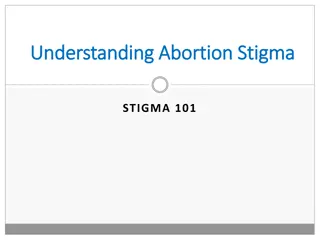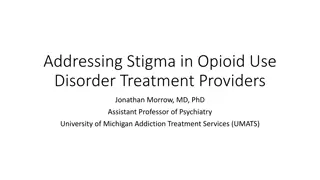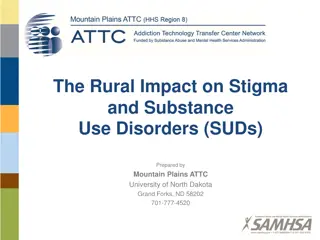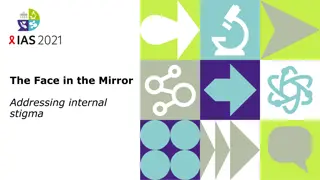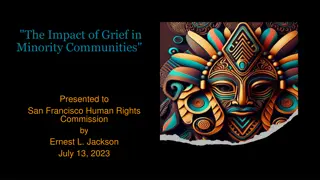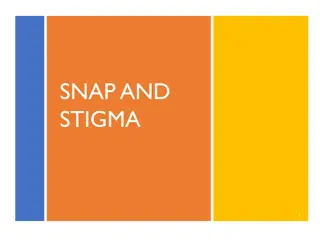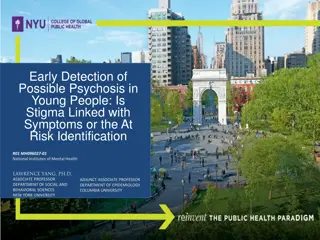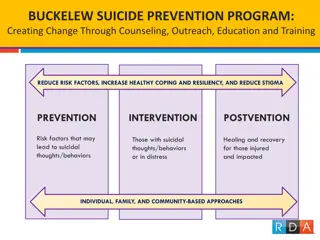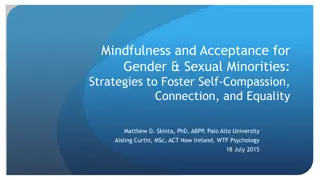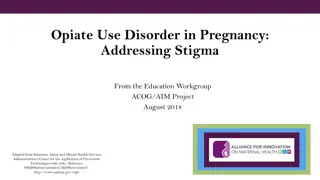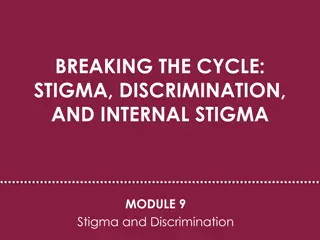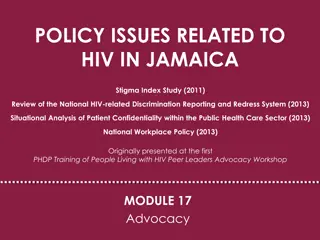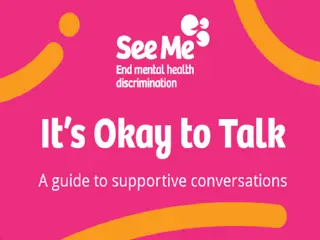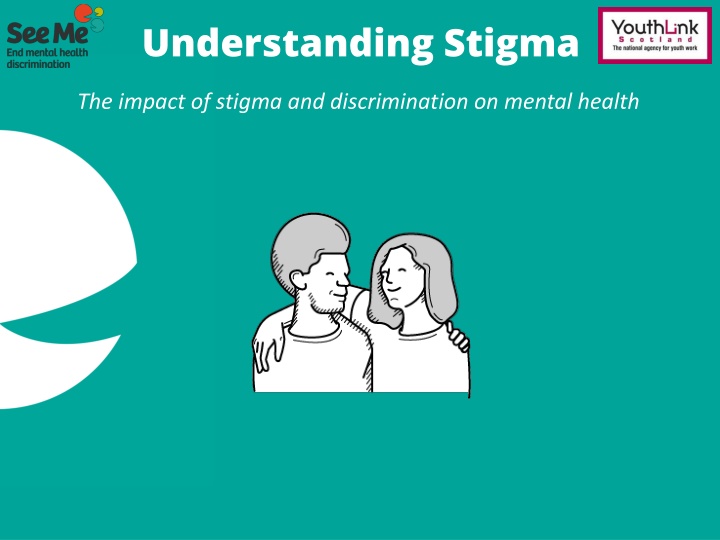
Understanding the Impact of Stigma on Mental Health
Explore the relationship between attitude, stigma, and discrimination in mental health. Learn about the negative beliefs associated with mental health conditions and how stigma affects individuals. Discover the different types of stigma and how it influences perceptions.
Download Presentation

Please find below an Image/Link to download the presentation.
The content on the website is provided AS IS for your information and personal use only. It may not be sold, licensed, or shared on other websites without obtaining consent from the author. If you encounter any issues during the download, it is possible that the publisher has removed the file from their server.
You are allowed to download the files provided on this website for personal or commercial use, subject to the condition that they are used lawfully. All files are the property of their respective owners.
The content on the website is provided AS IS for your information and personal use only. It may not be sold, licensed, or shared on other websites without obtaining consent from the author.
E N D
Presentation Transcript
Understanding Stigma The impact of stigma and discrimination on mental health
SESSION AIMS WHAT YOU WILL LEARN 1. Explore the relationship between attitude, stigma, and discrimination. 2. Discover how attitudes can be changed with accurate information. 3. Describe how stigma can act as a barrier to getting help for mental health.
What do you think the definition of stigma is? Stigma: The negative attitudes or beliefs based on a preconception, misunderstanding or fear of mental health. Discrimination: When a person performs an action, whether intentional or unintentional, that creates barriers and inequality for people with lived experience of mental health problems.
Understanding Stigma What are negative things you have heard people say about mental health conditions? Why do you think mental health conditions are stigmatised? How do you think stigma affects the lives of people with mental health conditions?
Understanding Stigma Can you think of any other health conditions or social issues that have been stigmatised throughout history? What factors have helped change public attitudes about these? What do you think influences perceptions about mental health?
The 4 types of stigma Public stigma: Public stigma can be experienced as the negative attitudes and beliefs held by the general public towards people with mental health problems. Self-stigma: Self-stigma happens when people who experience mental health problems internalise public stigma and when experienced by some can result in self-limiting behaviours and impede recovery.
The 4 types of stigma Stigma by association: Stigma by association can be experienced by someone connected to people with mental health problems. Structural stigma: When the rules, policies, and practices of social institutions restrict the rights of and opportunities for, people with mental health problems experienced as inequity in terms of (for example) employment, funding for mental health care or mortality rates.

